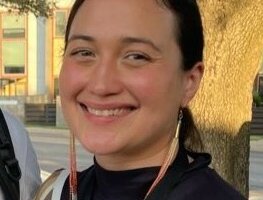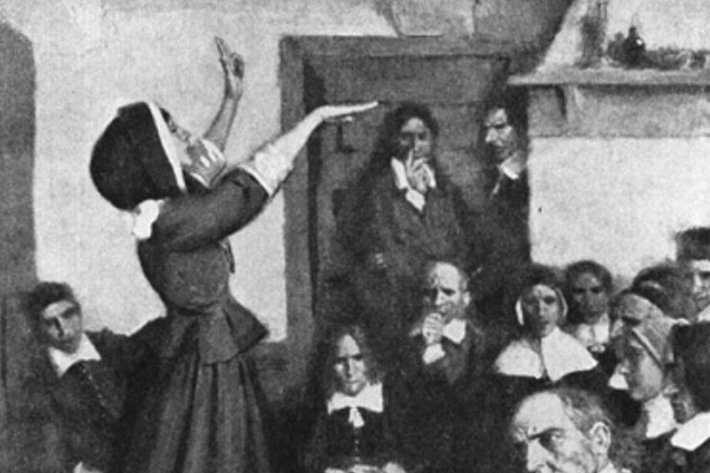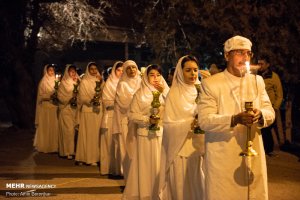A curious thing happened in the world of streaming video this spring. The Number One movie on Netflix was not a star-studded action adventure, a rom-com, or dystopian apocalyptic zombie movie.
No, it was a movie based on a Bible story, Testament: The Story of Moses. It is a three-part docudrama, not with an international star-studded cast, but with a bevy of historians and theologians representing three major religions: Judaism, Islam and Christianity.

Moses by Michelangelo (Creative Commons license)
The story of Moses and the Children of Israel is interspersed with commentary by these eminent scholars, drawing a line from the ancient to the modern, each speaking from the point of view of their respective faith.
One ceases to wonder how such a film—possibly more suited to the History Channel with its documentary-style stops and starts—would hit Number One when one realizes that the themes are universal and timeless. Freedom, community, faith.
When people of different faiths and cultures work together, magic happens. The Children of Israel were not the only community freed from bondage. Other faiths came with them—Egyptians who had intermarried with Hebrews, desert tribes such as the Kenites, and other pagan and nomadic peoples. A “mixed multitude,” as the Bible calls them. Some of the tidbits you’ll find in this movie that you won’t find in deMille’s The Ten Commandments or in the animated musical Prince of Egypt are instances of how such diversity can create a new nation, each one pitching in with their own particular talents.
An overworked Moses, for instance, is told by his father-in-law, Midianite High Priest Jethro, that he needs to delegate or he’ll work himself to death. With Jethro’s experience and direction, Moses follows the advice. He consigns and deputizes his considerable workload, appoints lieutenants, sets up courts for disputes, and, consequently, gets much-needed family time with the wife and kids.
The commentators also give an example from the Midrash, an ancient compilation of Biblical parables and interpretations. The story goes that when the Children of Israel found themselves trapped between the Red Sea on one side and Pharaoh’s invincible armies on the other, God considered whether it would be worth it to save them.
“Let them drown!” the angels attending him cried. “The Egyptians worshiped idols, and so did they. Humans are garbage! Just drown them all, like You did back during the Flood. Spare Moses, like You spared Noah, and start from scratch!”
God answered, “You’re missing something. This time it’s different. Look at them. This time, they’re together!”
And so they were spared.
The critical lesson implied in the movie—and it’s making an impact if we watch the ratings—is that we, too, must work together despite our differences. Just as Moses had to learn that even he couldn’t do it all by himself, we must be inclusive, not just inviting other faiths and cultures to the party but asking them to dance.
And, like the scholars and theologians who tied the film together with their viewpoints from their different faiths, backgrounds and cultures, the only way out of the labyrinth of lies and violence we seem to delight in trapping ourselves in is to pull together using our own unique and marvelous gifts.
As Bishop Andy Lewter of the Full Gospel Baptist Church Fellowship observes in the film, “Even if you get to Canaan—even once you have freedom in name, it still requires a struggle.”
And the way to keep that freedom is to work together.
Unless we want to drown in the Red Sea.
_________________
From its beginnings, the Church of Scientology has recognized that freedom of religion is a fundamental human right. In a world where conflicts are often traceable to intolerance of others’ religious beliefs and practices, the Church has, for more than 70 years, made the preservation of religious liberty an overriding concern.
The Church publishes this blog to help create a better understanding of the freedom of religion and belief and provide news on religious freedom and issues affecting this freedom around the world.
The Founder of the Scientology religion is L. Ron Hubbard and Mr. David Miscavige is the religion’s ecclesiastical leader.
For more information, visit the Scientology website or Scientology Network.


